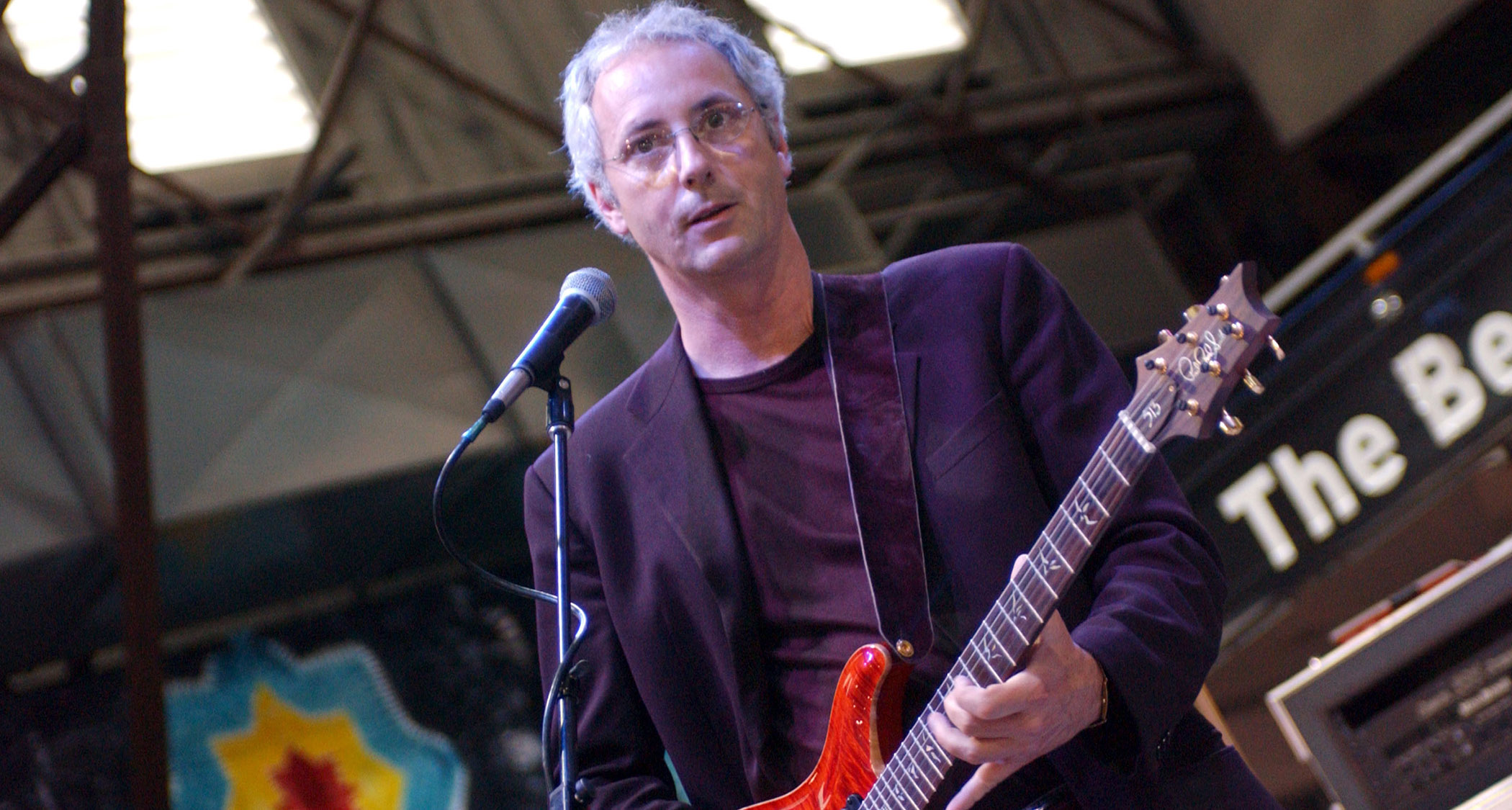Zakk Wylde on why his new online guitar course is about "not burning the steak", and how he's approaching Dimebag Darrell's parts for Pantera's upcoming shows
The Black Label Society man on imparting decades of six-string wisdom in his new Berzerker Guitar Camp, and how some serious woodshedding is helping him learn Dimebag's formidable catalog of solos
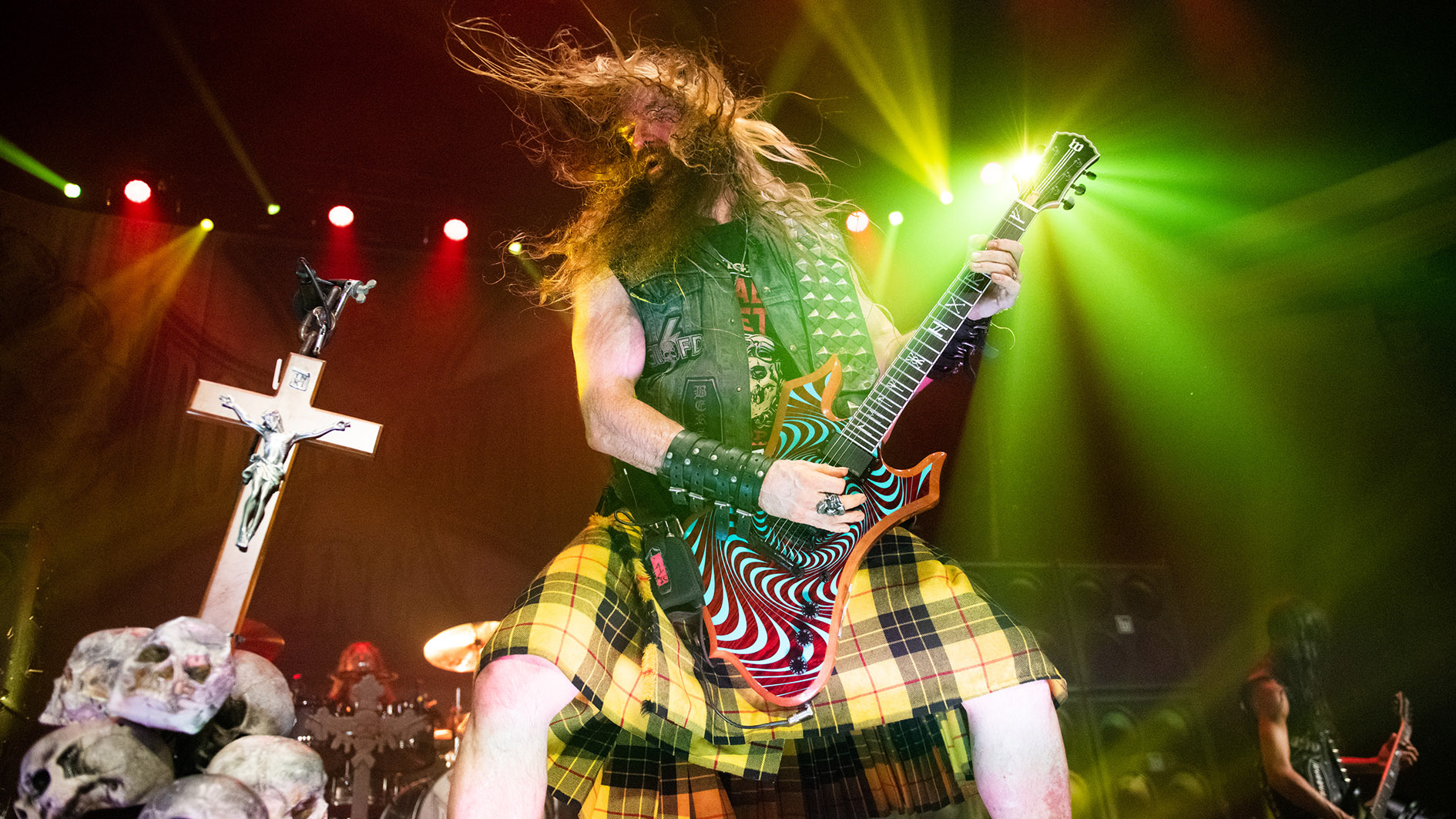
As longtime Ozzy Osbourne axe-slinger Zakk Wylde's voice jovially cracks over the speaker of my iPhone, a palatable sense of controlled chaos laced with beaming humor emanates through his words to my ears, “It's Friday, my dude. I'm ready to kick back. Can you dig it?”
With the news of Pantera's imminent reunion, Wylde seems to be brimming with anticipation, excitement, and a certain level of je ne sais quoi. At first, Wylde sidestepped the buzzwords, headlines, and news anecdotes, leaving Pantera's rise from the ashes to the side as he gave the inside scoop on his Berzerker Guitar Camp.
Wylde's excitement for this venture, too, was evident, as the camp offers aspiring guitarists a unique opportunity to learn the methods behind Wylde's madness.
“This was fun for me and also something that's important to do for the fans,” he says. “Because before I started playing with Ozzy, back in the '80s, I was teaching and stuff like that, and it was something that I did for a while. For me, it's always great when I see somebody improving.
“I love the idea of how stoked young players get when they can figure out how to play the lick in a song that they've loved their whole life. It's awesome, and that's the idea here.”
Available through Riffhard, the camp is a chance for young six-stringers to learn the basics with an eye toward becoming well-rounded without the pitfalls of going it alone.
And for established players, the Berzerker Guitar Camp represents an opportunity to deepen their knowledge, become more dynamic, enhance their fluidity, and have a bit of fun while recounting any subtle nuances they might have missed.
All the latest guitar news, interviews, lessons, reviews, deals and more, direct to your inbox!
“As far as guitar playing goes, it's not a one-size-fits-all thing," Wylde quipped. "It's different for each person because, for example, not everybody wants to be rippin' like John McLaughlin on Friday night in San Francisco. [Laughs].
“Some people are just like, ‘Bro; I just want to learn a couple chords and learn how to play some songs.’ So, it depends on what you want to do with the instrument, but it doesn't matter what level you're at, the guitar is an awesome thing, and there really is something here for everyone.”
The timing of Berzerker Guitar Camp's availability is perfect, coincidentally falling in line with the announcement of Pantera's reunion shows. So, it seems that Wylde has been logging a fair number of hours in the practice shed as he prepares to pay tribute to his late friend and Pantera guitarist, Dimebag Darrell.
“It's been a wild and fun ride, and we're only just getting going,” Wylde excitedly recounts. “As far as interpreting Dime's style and learning the parts, you can compare it to me when I'm playing Randy or Jake's Ozzy stuff. If I play Crazy Train, it's gonna sound like me playing Randy's stuff. And if I play Bark at the Moon, I can nail it, but I am not gonna sound the same as Jake did. So, that's not something you can ever escape, and that's probably the biggest challenge of it all.”
All I know is that they called me, asked me if I wanted to honor Dime, and I said, ‘Hell, yeah, I do.’ Honestly, I can tell you that I was all in right away; there were no maybes or questions
For Wylde, the opportunity to take the stage as a touring member of Pantera is the ultimate tribute to both a legendary icon and a close friend. With Ozzy Osbourne, he's played snake charmer to captive audiences across the globe and has written timeless solos that will stay with listeners forever.
And while he's interpreted the parts of Randy Rhoads and Jake E. Lee to sublime perfection, never has Wylde faced the challenging duality of filling the shoes of the universally lionized Dimebag Darrell.
“People ask me, ‘What makes now the right time to do this,’” Wylde continues. “And honestly, you have to ask the other guys. Yeah, Vinnie [Paul] did call me some years back, we talked about it, but it never materialized. So, like I said, you'd have to ask the other guys why they wanted to do it now.
“All I know is that they called me, asked me if I wanted to honor Dime, and I said, ‘Hell, yeah, I do.’ Honestly, I can tell you that I was all in right away; there were no maybes or questions. So, I'm not worried; I'm just going to honor my friend and play some kick-ass music while doing it."
As he prepares to take the stage with Pantera, Zakk Wylde dials in with Guitar World to discuss his Berzerker Guitar Camp, the challenges of mastering Pantera's riffs, and his thoughts on the legacy of one of metal's most galvanizing players, Dimebag Darrell.
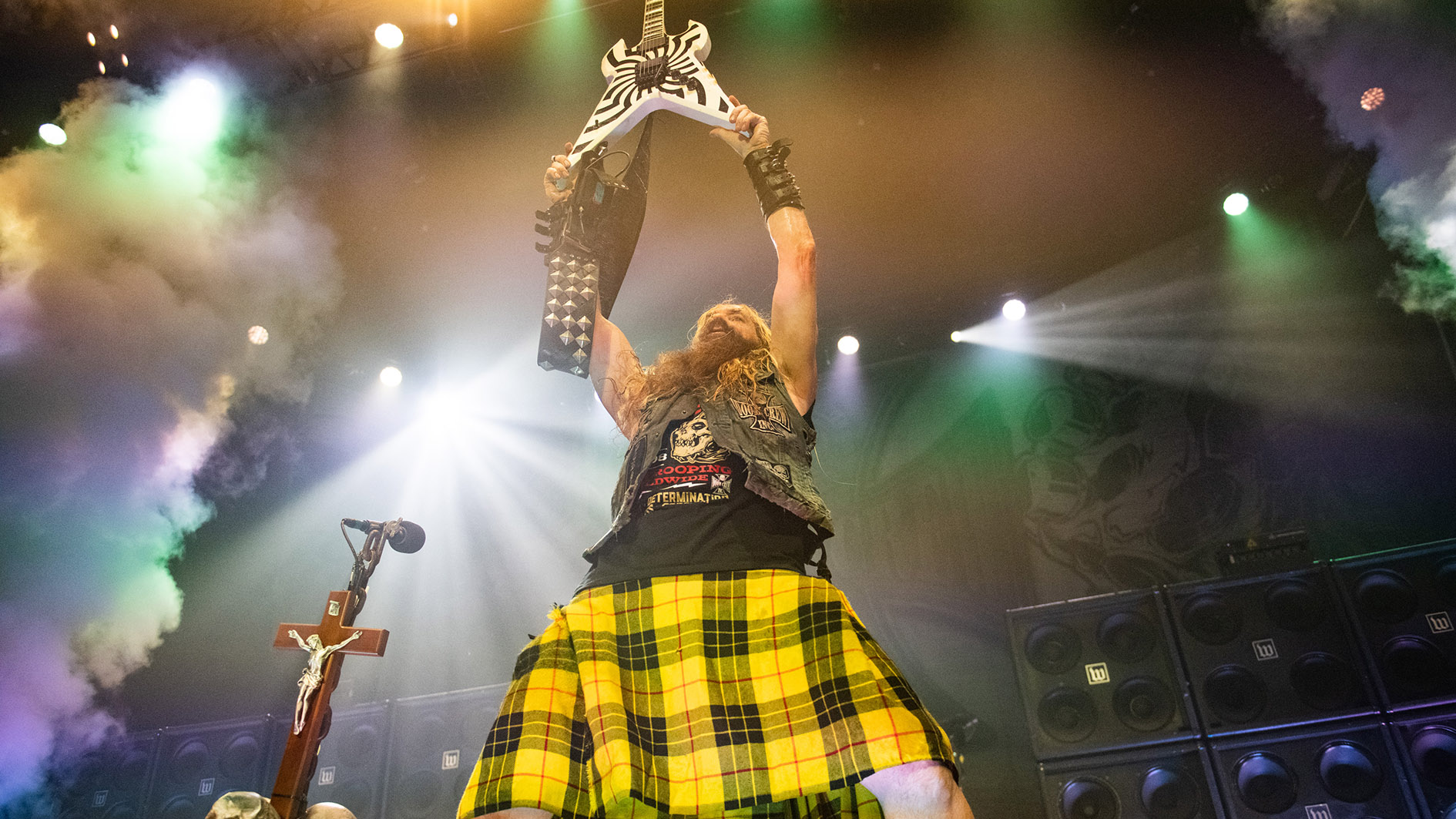
What can you tell us about your Berzerker Guitar Camp?
“Well, Riffhard asked me if I would be interested in doing it, and I gave it some thought and decided that it was something I would be into. It made sense because I'm always posting things on social media for people to check out.
“But as far as breaking things down and showing techniques, I don't do that on social media, so this is a new spin. Like, if I'm gonna show people the No More Tears solo, yeah, I'll put that on social media. Or rather, I'll post a video of me playing it for people to see, and they can do what they will, but that's not me teaching it per se.
“So, they asked me if I'd be into it, and I was just like, ‘Yeah, why not? I'm into it. This a great way to break it down.’ Because people will ask me how to do this or play this solo or what I did in certain instances, and I never have time. They'll be like, ‘Zakk, can you show me how to do it?’
“I'm like, ‘Bro; I don't have the time. I wish I did. I'm sorry.’ Between making sure my fishnets match my stilettos and my rouge matches my eyeliner, I don't have time for this stuff. [Laughs].
Basically, the lessons show young players that the steak – the guitar playing – comes out perfect when you take the time to ensure you're following the proper steps
“So, the whole thing is a great way for me to break things down and help people learn. I got to a point where people were asking me, and I was like, ‘Man, I don't have the time for it. I want to, but I can't.’ So, the camp was a great means for me to do that and a way for me to knock it out in one shot.”
What are some unique features that will be beneficial to both novice and experienced guitarists?
“Well, and I'm using some symbolic language here, but basically, I talked a lot about how not to burn a steak. [Laughs]. Basically, the lessons show young players that the steak – the guitar playing – comes out perfect when you take the time to ensure you're following the proper steps.
“You can't rush it; if you want a medium steak, then you're going to have to watch what you're doing and not overcook it. It'll save you a lot of time, energy, and money if you don't rush things; otherwise, you're just going around and wasting good beef.
“And with more experienced players, obviously, they should know not to burn the meat. So, this will be more of a refresher course in many ways, but it'll also help them. But to both young and old players, don't burn the steak, especially if it's a good one. [Laughs].”
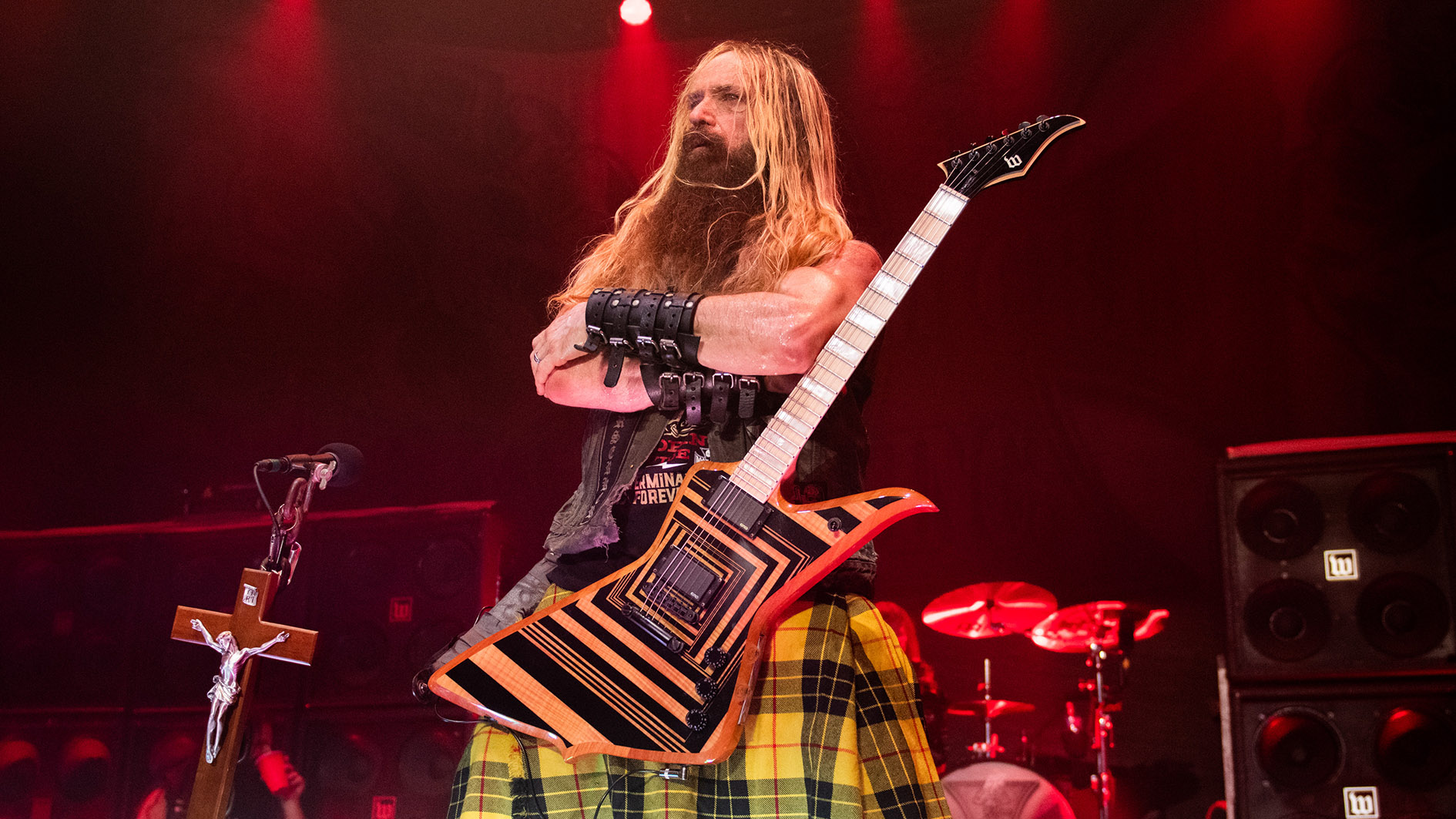
With the plethora of guitar courses out there, what are some of the things that make this one special?
“What makes this special is that it's me just sitting down and going over things in ways I personally haven't before. And both young and experienced players can take that in and digest it as it makes sense to them.
“If I could explain it in a way that makes the most sense, I'd compare it to when I took guitar lessons when I was young with Leroy Wright. Leroy was awesome because he likened learning guitar to having a bunch of car parts scattered on the ground, so it was like a puzzle.
“But he had the approach of, ‘Well, now we have to put the engine back together and make the car work.’ So, Leroy would show me how each of these parts worked and why they needed to be where they were.
“The way I see it is if you're showing me how every one of these parts works and why it is what it is, that makes it much easier. So, with the guitar camp, I am giving people a firsthand look at how to do these things, where they go play along on their own. It's like driving a stick shift: sure, people can sit around and try and figure it out on their own, and that can work.
“But if you show them how to drive a stick shift, and we're working together, it will make it that much easier. If you're on your own, you'll probably learn, but you also might go through three or four transmissions. But this way, people will be grinding fewer gears if we're now showing them the proper way to do it.”
There are things like tuning your guitar or learning specifically what a G or an E chord is supposed to sound like, and all that comes from repetition. But today, having something like this where somebody is showing you is a huge leg up
Coming up as a young guitarist pre-internet, what was it like trying to hone your skills?
“Well, it's a different age now with access to the internet, so it's totally changed how we digest all this stuff. Because it was a big deal back in the day if you had a record player that you could slow down to where you could try and break the guitar parts down.
“I remember trying to learn Spirit of Radio by Rush, and it took me a long time to get it down, and I didn't have help. But it really is amazing when you can play something that you love in the proper way. I remember working on that, and I was like, ‘Oh, there it is. This is how it's supposed to sound. That's how Alex Lifeson did it.’
“It took me a long time to hear the difference and learn how it was supposed to sound, and once I did, that was a big deal for me. And as far as learning and training your ear, back then, it was a matter of repetition, meaning the more you do it, the better you'll get at it.
“Because there are things like tuning your guitar, learning specifically what a G or an E chord is supposed to sound like, and all that came from repetition. And over time, at least the way it was for me, it becomes something that you could do by ear. But today, having something like this where somebody is showing you is a huge leg up.”
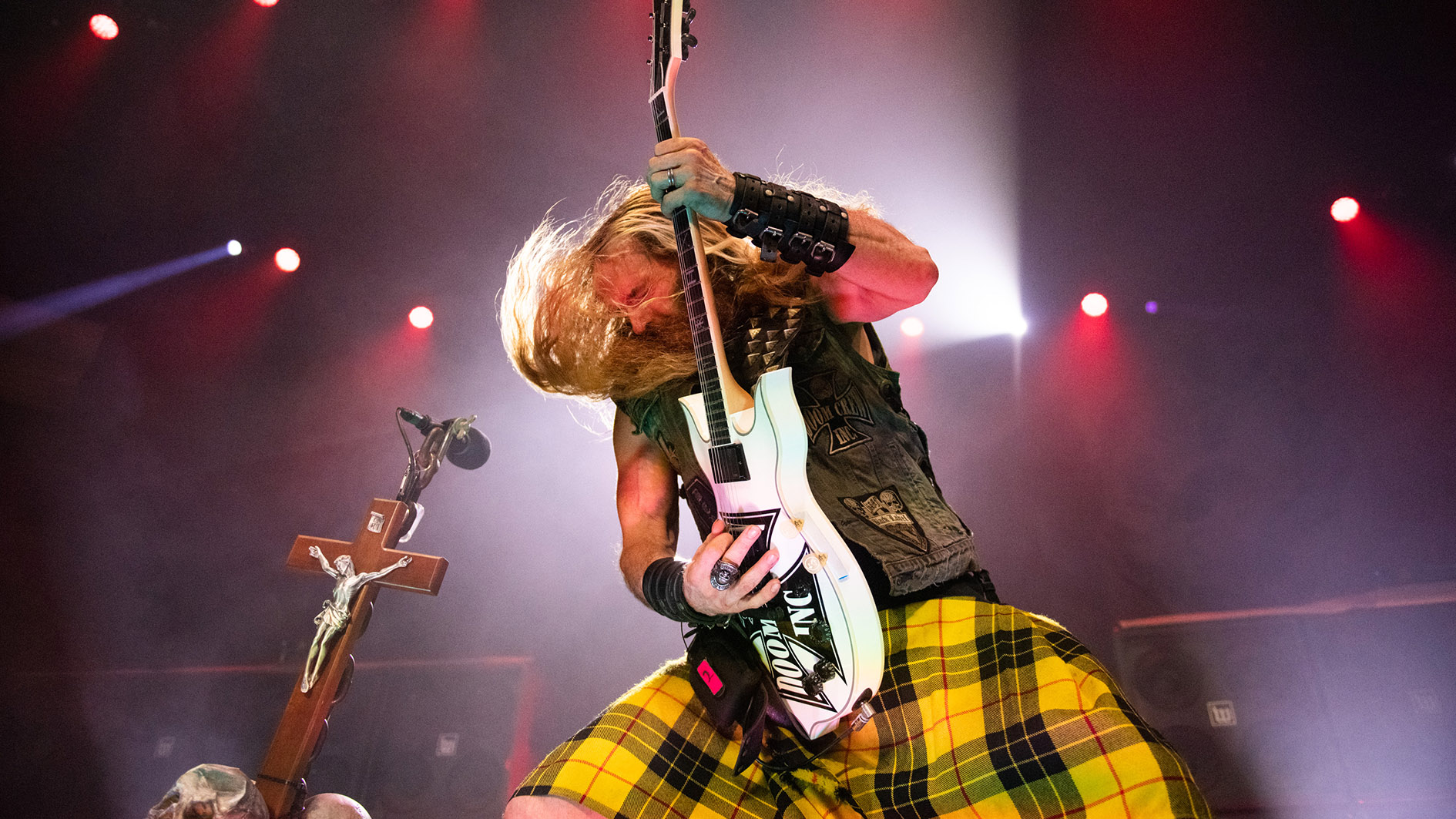
How has your approach to the guitar evolved?
“The way I look at it is we never stop learning. There is always something that you can get interested in, whether it's jazz licks, bluegrass, or anything that you want to try and incorporate into your playing. And the beautiful thing about music is it's endless, as is writing and recording.
“So, my sound is still the same, but I attack the guitar with an open mind and a willingness to add other interesting things into the mix. When I was young, I might not have done that simply because I was still getting familiar with certain sounds. My sound is the same, but the intention behind what I do is always evolving based on what I'm hearing around me or taking in.”
I'm sure you knew it would be polarizing to reunite Pantera with two new members, but was there any concern with how it would be received?
“No, I wasn't worried. Because as far as I'm concerned, it's like giving Dime and Vinnie [Paul] a birthday present. It's like, ‘Hey, guys, from us down here to you up there, check this out. We're gonna play your songs for you.’
It's like me with Ozzy when I learned the Randy stuff, the Jake stuff, or even the Lord Iommi stuff; I'm not trying to imitate them or be them, you know? I'm paying tribute, but it's still me
“So, the way I look at it is – and this goes back to when we talked about it when Vinnie was alive - this was always about me honoring Dime, and now it's also about Charlie [Benante] honoring Vinnie. But back then, Vinnie called me and said, ‘Zakk, would you be into doing this? Would you be able to honor Dime?’
“And I was just like, ‘Yeah, of course, I will. Just tell me when and where.’ So, ‘reunion’ is a loose term because it's not us trying to be the original Pantera, and it's not about calling it a ‘reunion’.
“It's like me with Ozzy when I learned the Randy stuff, the Jake stuff, or even the Lord Iommi stuff; I'm not trying to imitate them or be them, you know? I'm paying tribute, but it's still me.
“Obviously, I want to try and stay as faithful to Dime's solos as I can, just like I do when I'm playing Randy's Mr. Crowley solo. So, it's a fine line, but more importantly, it's an honor to be doing this.”
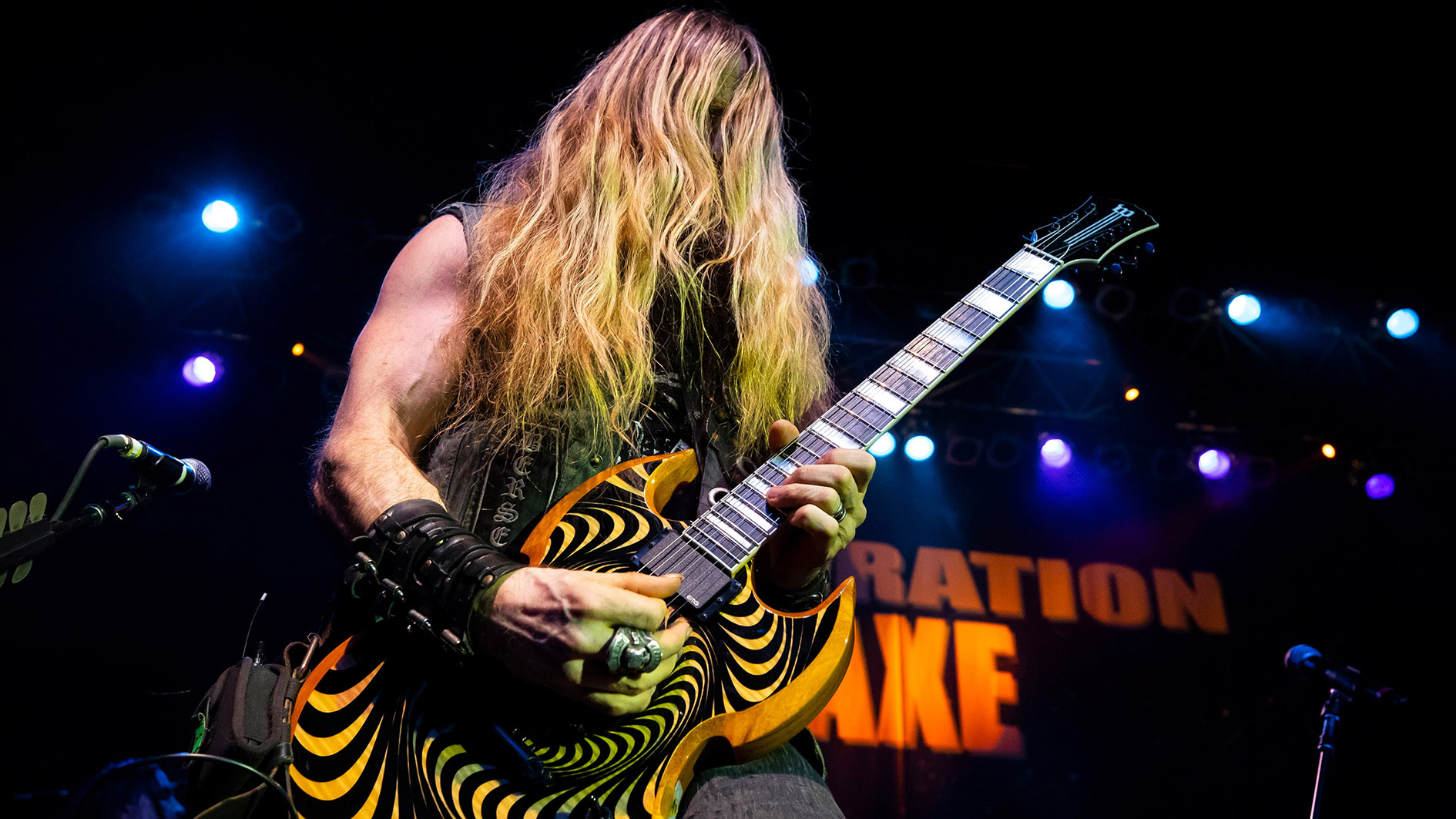
It's been reported that you'll consider using some of Dime's gear. Is there any truth to that?
“Well, they said to me early on, ‘If you want to use any of Dime's stuff, you're more than welcome to.’ And I think that's cool, and I might use some of Dime's heads, pedals, or the cabs, and stuff like that. So, when I heard that, I was like, ‘Shit, that's awesome. Let's do it.’
“And I think Dime's tech, Grady [Champion], is gonna be coming down too, which is great. I've got my tech, but it'll be great to have Grady here to help pay tribute to Dime.
“So, I'll be using my guitars, effects, and pedals, a lot of the pedals that Dime actually gave me, and yeah, I'll definitely be using some of Dime's pedals and stuff, too. I'm still working out how it'll all come together, but I am looking forward to seeing how it all flows once I do.”
What are some of your biggest challenges in interpreting Dime's unique approach?
“No matter what I do, it's going to sound like me. I can practice all I want and stay as faithful as I want, but I am never going to escape that. It's like if Dime were still here, and he played Miracle Man or No More Tears – even if he played them spot on – it would still sound like Dimebag Darrell playing Zakk Wylde.
The way I look at it is I am going to go in, learn the parts, be as faithful to what Dime did as possible, and just be me
“So, that's a challenge, but it's not a bad thing at all. It's like if Randy Rhoads were to play Eddie Van Halen's Eruption, no matter what he did, it would sound like Randy playing, not Eddie. You're never going to mistake Randy for Eddie or Eddie for Randy, and it's the same thing here with me playing Dime's stuff.
“So, the way I look at it is I am going to go in, learn the parts, be as faithful to what Dime did as possible, and just be me. I'm gonna have fun with it, knowing that I am not expecting myself to sound like Dime, and no one else should either, which is how it is when I play with Ozzy or whatever else.”
Have you started learning any of the tracks yet? If so, which ones are you most looking forward to playing?
“Oh, yeah, I have. I've been working on the songs for a while now. As soon as we started talking about it, I started woodshedding and learning the parts. Obviously, we're gonna play all the most popular tunes, and those excite me for sure.
“The solos in so many of these songs are just incredible, and I've been working on a bunch here; Goddamn Electric is ripping; that one I'm amped about. All the solos are a shred fest and slammin', but Domination is cool, and I'm Broken is another one that gets me going.
“Honestly, there isn't one single song that I'm not excited to play because we're talking about absolutely slammin' solos, dude. The whole thing is absolutely killer, and I've been having a blast learning these songs the entire time. I mean, how could I not?”
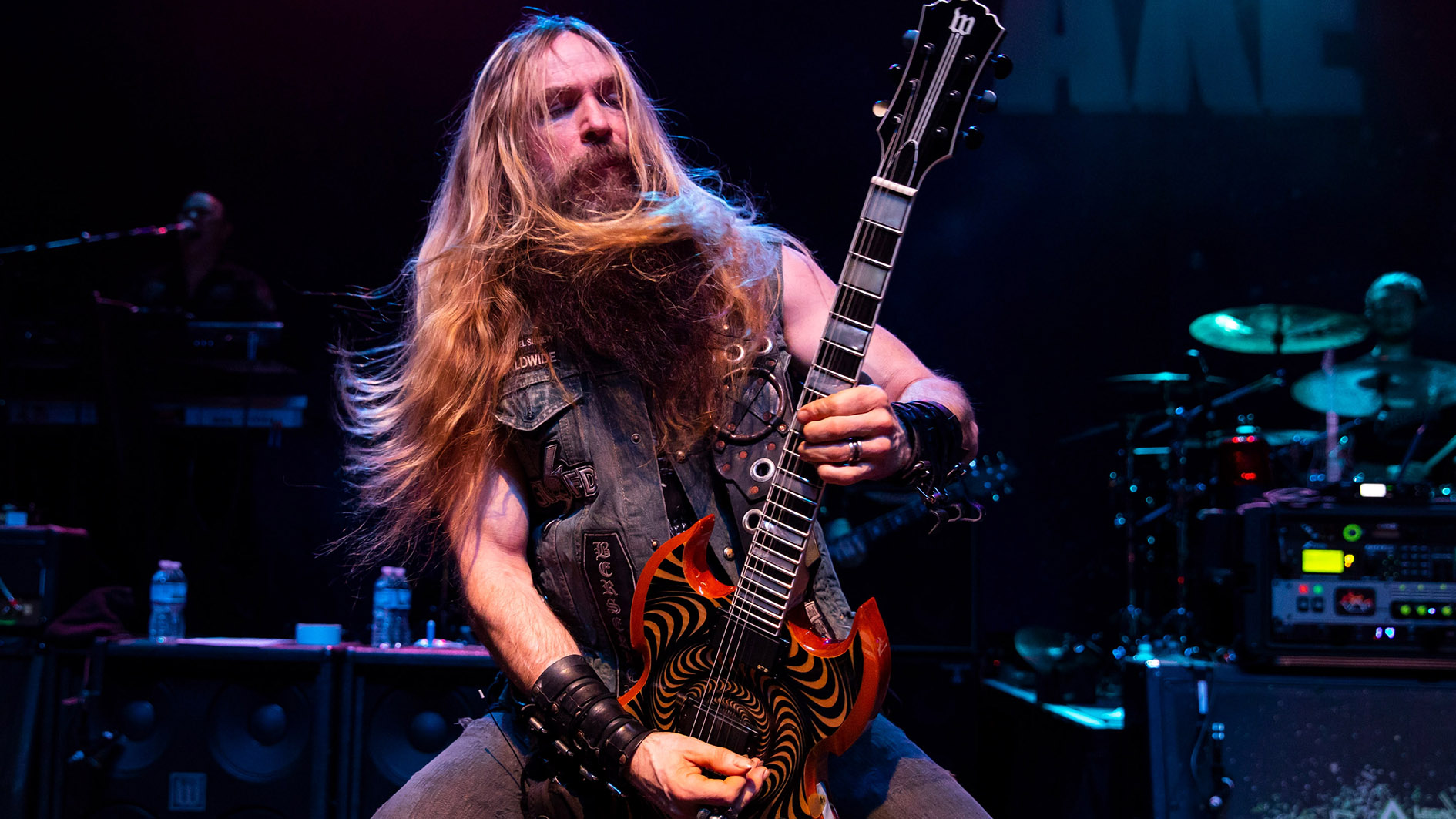
As a close friend of Dime and a contemporary, why is it important to preserve his legacy?
“Well, it's weird because I met Dime in '93 when we did Donington. That was the first time I was aware of him because Pantera weren't on my radar before that. Not because they weren't awesome, it's just because I wasn't listening to that stuff at the time.
“Around then, I was all about Sabbath, Zeppelin, and things like that. So, I was playing Donington with Ozzy, and that's when I first saw Dime play. We sat back and watched him play, and it was, like, phenomenal.
“So, when I think of Dime's legacy, I go back to the first time I saw him when I was utterly blown away by what he was doing. Aside from the amazing solos, Dime had incredible chops, riffs, and technique, unlike anyone else. And since then, I've never heard anyone play the same way Dime did, seriously.
“Aside from his ability to play in such a unique way, with Dime, his legacy is almost like Tony Iommi's in that he created an entirely new genre of music. Because when you think of that genre of metal, Pantera is in a lot of ways like the Beatles or Black Sabbath.
“For that style of metal, like the Beatles, or Black Sabbath, Pantera is the top dog in that world to the point that everybody else is forever hands down compared to them.
“So, that's what Dime's legacy is, and that's why it's an honor to do this. It doesn't matter if it's on the biggest stage on the world or in a phone booth; it means a lot to me to be able to honor Dime's memory. It's important because, in many ways, like Tony Iommi, Dime was a creator of an entire genre of music.”
- Zakk Wylde's Berzerker Guitar Camp is available now. Pantera's reunion tour begins December 2 at Mexico's Hell and Heaven Open Air.
Andrew Daly is an iced-coffee-addicted, oddball Telecaster-playing, alfredo pasta-loving journalist from Long Island, NY, who, in addition to being a contributing writer for Guitar World, scribes for Bass Player, Guitar Player, Guitarist, and MusicRadar. Andrew has interviewed favorites like Ace Frehley, Johnny Marr, Vito Bratta, Bruce Kulick, Joe Perry, Brad Whitford, Tom Morello, Rich Robinson, and Paul Stanley, while his all-time favorite (rhythm player), Keith Richards, continues to elude him.

